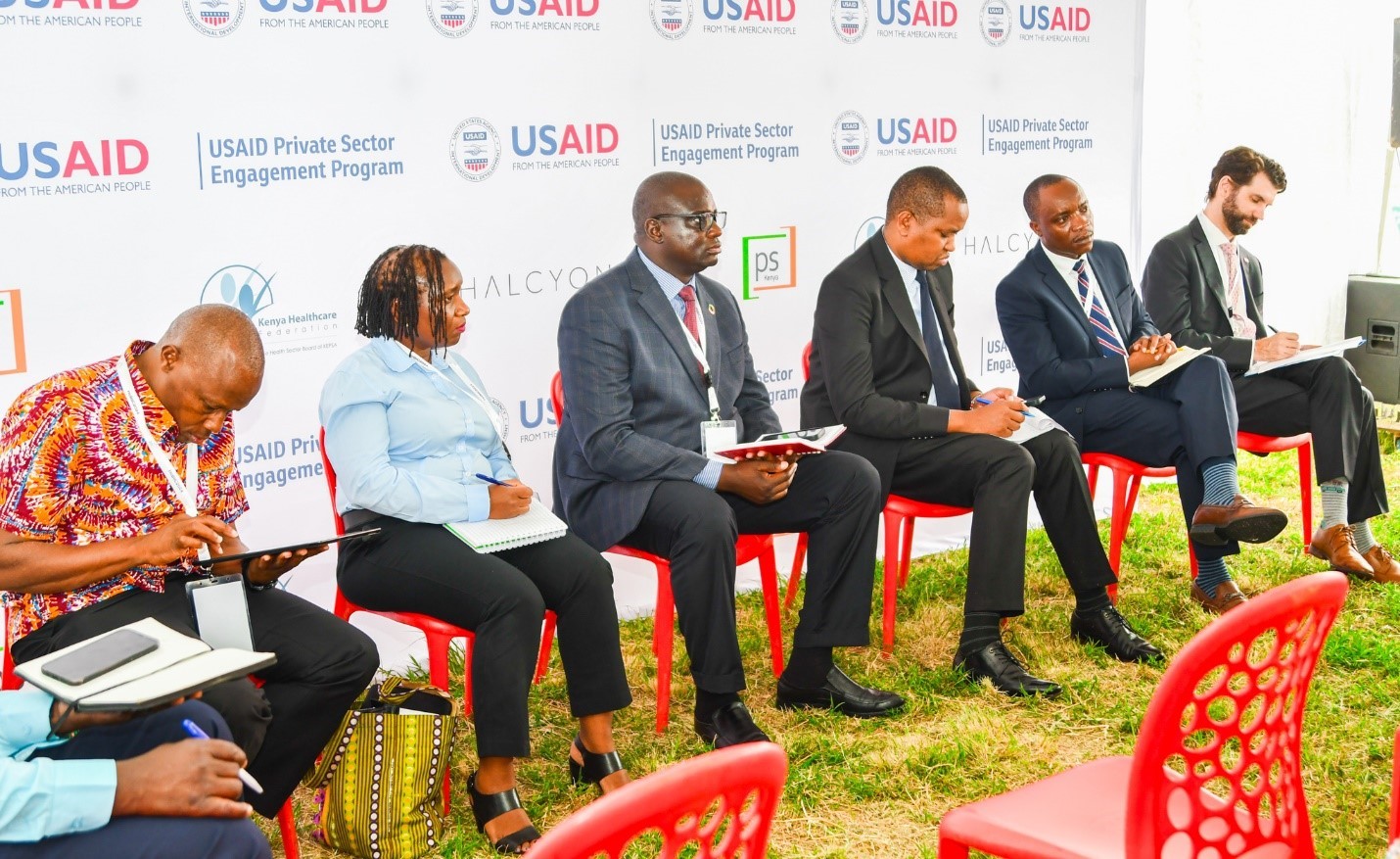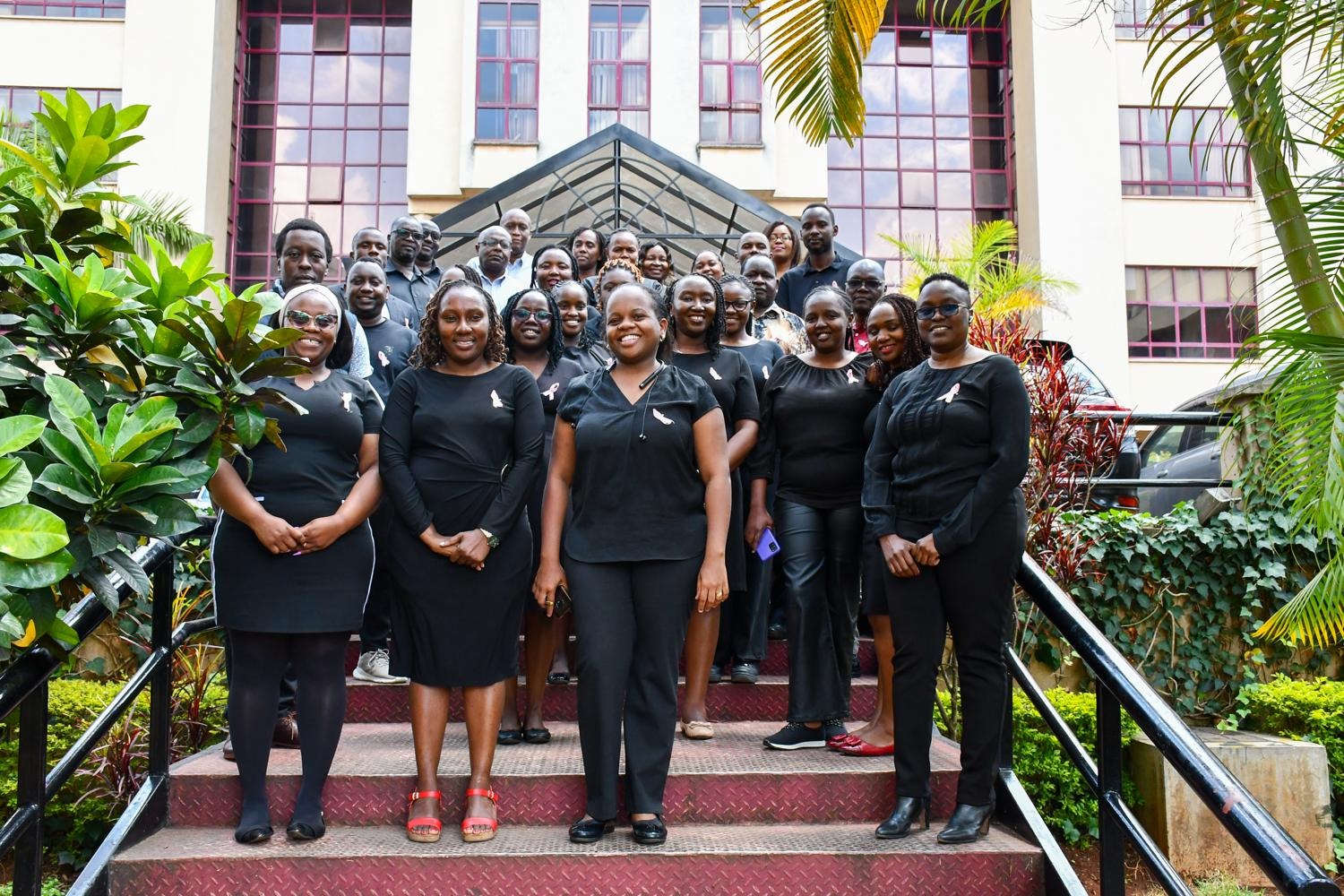During the second Homabay International Investment Conference held at the Tom Mboya University in Homabay County from February 27th to 29th , 2024, the USAID Private Sector Engagement (PSE) program sponsored a panel discussion that brought together different experts in the health sector who shed light on the topic “Delivering Value in Healthcare through Public-Private Collaboration.”

Dr. Kanyenje Gakombe, the founder and CEO of Metropolitan Hospital in Eastlands, Nairobi, underscored in his opening remarks the urgency for Kenya to seek value-for-money options in healthcare. He emphasized that delivering quality care is important and cannot be overlooked in any way, highlighting the role of public-private partnerships (PPPs) and collaboration in achieving this goal.
Representing the PSE program on the panel, Sylvia Wamuhu, the Chief of Party for the USAID PSE Program, highlighted the key role of public-private partnerships in driving progress within the healthcare sector, underscoring the importance of a holistic approach to tackling healthcare challenges.
“Achieving impactful change in healthcare necessitates a collaborative approach. We must leverage the strengths of both the public and private sectors to address the complex challenges we face,” stated Sylvia.
One notable example cited by Sylvia is the partnership between Zipline and various counties in Kenya. Through this collaboration, Zipline facilitates the supply of essential vaccines purchased by the government, ensuring timely delivery to public healthcare facilities. Such initiatives demonstrate the tangible impact that public-private partnerships can have on improving healthcare delivery.
John Kuenhle, Health Office Director USAID, discussed the development sector’s role in incentivizing innovation and capacity building in healthcare. He highlighted examples of successful projects supported by USAID and the Gates Foundation, emphasizing the importance of collaboration and capacity building in the private sector. John went ahead to highlight the need for a total market approach emphasizing the growing recognition of the ability to partner in addressing challenges collaboratively.
The PSE program aims to create an enabling environment that fosters innovation, investment, and capacity building. The program’s alignment with Kenya’s healthcare objectives, including the localization of essential medicine production and the enhancement of service quality across public and private healthcare facilities, highlights its significance in advancing the nation towards universal health coverage.
As the program unfolds and as the healthcare landscape keeps evolving, it beckons a more coordinated approach to addressing healthcare challenges at both the grassroots and systemic levels. Such a synergy can be best achieved by forging alliances with both the public and private sectors. In this way, innovative solutions can be developed to enhance service provision and improve health outcomes for all.
In closing, the panellists each cited the need for continued investment in local manufacturing capacity, incentives, and regional distribution models to address healthcare challenges at the grassroots level and to focus on improving service provision over infrastructure development



